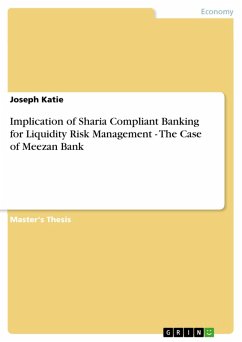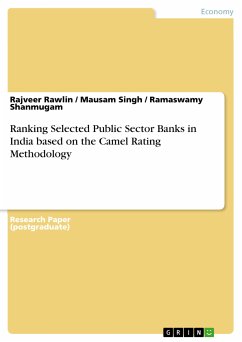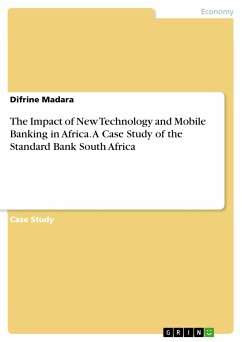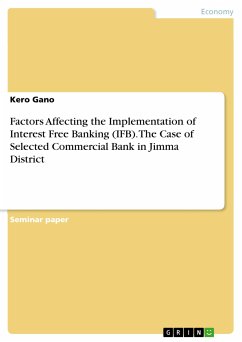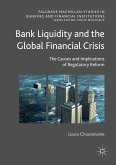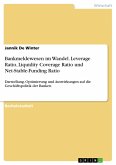Master's Thesis from the year 2011 in the subject Business economics - Banking, Stock Exchanges, Insurance, Accounting, grade: B, Oxford University, language: English, abstract: From the start of commercial banking since1970s Islamic banking and finance has revealed progressive expansion over the globe. Pakistan, as one of the largest Muslim nation in the world, has taken some policies and established some strategies in order to develop Islamic banking industry in the country. Islamic banking, like commercial banking, faces a number of implications that may influence their operational performance. One of such implications is liquidity risk that provides extra features in the situation of Islamic banking. Both the Sharia rules and the international standards of banking propose that banks must have some strong management policies concerning to implication of liquidity risk, such as a liability committee and reactive asset, system of internal control and useful information, and techniques for managing deposits to decrease liquidity on-demand, in order to manage the liquidity risk and its implications. The purpose of this study, therefore, is to analyze the liquidity risk management and its implications in Islamic banking. This objective is fulfilled through the case study of Meezan Bank in Pakistan Islamic banking industry. The methods of data collection and analysis in this study include a combination of qualitative and quantitative research methods to reach the aims and objectives of this research. Additionally, the primary data with the help of questionnaire survey was also collected with the intention of understating the real practices and implications of liquidity risk management. It was examined from the perspectives of depositors of Islamic banking and Islamic bankers in order to provide further sights on the issues related to liquidity risk management. The empirical analyses conducted in this research demonstrate, rate of interest in Islamic banking, staff behaviour with the clients in Islamic banking, quality of the service provided in Islamic banking, choice of bank through staff training, the adoption of liquidity risk management concept, and the level of withdrawal by the depositors and liquidity behavior of bank depositors. Finally, on the basis of these research findings, the study then provides comprehensive and integrated recommendations to manage the implications of liquidity risk in Islamic Banking.
Dieser Download kann aus rechtlichen Gründen nur mit Rechnungsadresse in A, B, BG, CY, CZ, D, DK, EW, E, FIN, F, GR, HR, H, IRL, I, LT, L, LR, M, NL, PL, P, R, S, SLO, SK ausgeliefert werden.

